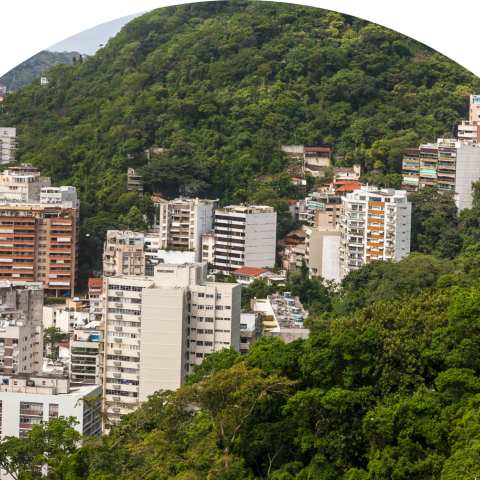CLP
19.4 million
$475.9 billion
What it's like to hire in Chile
Benefits of hiring in Chile
Chile is the most economically competitive economy in Latin America and the Caribbean, according to the World Economic Forum. Chile’s economic prominence stems from its low inflation rate, low public debt, and competitive and open markets.
Chile is renowned for its business-friendly legislation and economic freedom. Only Singapore has more Free Trade Agreements than Chile.
Thanks to Chile’s historically stable economy and continued integration into international markets, Chile holds an A+ credit rating from Fitch.
Chile is part of the Pacific Alliance, a Latin American trade bloc that includes Colombia, Mexico, Peru, and 55 observer states. The bloc supports free trade in terms of goods, services, capital, and people, and accounts for about 35% of Latin America’s GDP. Over recent years, the Pacific Alliance has increased integration with Mercosur, South America’s other large trade block. If wholly joined with Mercosur, the Pacific Alliance would nearly double its size, expand its international reach, and vastly increase its economic potential.
Chile is the most economically competitive economy in Latin America and the Caribbean.
Challenges when expanding into Chile
Companies doing business in Chile are required to make a minimum of 15 tax payments per year. Completing these taxes is a time-consuming and detail-intensive process. Both employment taxes and VAT (value-added tax) require an average of 124 hours to complete annually.
Despite the Chilean government’s business-friendly approach, legal bureaucracy still exists. Obtaining a construction permit, for example, requires 12 steps and can take 133 days to complete. Meanwhile, Chile ranks only 55th globally in terms of ease of starting a business, according to the World Economic Forum.
Chile lags behind other countries in Latin America and across the world in terms of resolving insolvency. In Chile, companies average a recovery rate of about 42 cents on the dollar, while the OECD high-income countries average above 70 cents on the dollar. Additionally, companies must invest more time (an average of two years) and cost (an average of 14.5% of estate value) to resolve insolvency than they would in other OECD high-income countries.
Companies doing business in Chile are required to make a minimum of 15 tax payments per year.
Cultural nuances and must-knows for doing business in Chile
Be patient when conducting business in Chile. The Chilean business world values developing relationships and moving methodically. As is true in several South American countries, Chileans prefer taking their time than feeling pressured to rush.
Build relationships from the top down. Senior executives are responsible for making decisions and expect you to deal with them before interacting with more mid-level personnel.
Balance formality with warmth. While the Chilean culture is welcoming and expressive, people in the business world tend to be more conservative until you’ve earned their trust.
Establish eye contact and shake hands upon initial greeting. Expect your Chilean associates to stand closer to you than people in other countries. Do not be offended if interrupted by a Chilean colleague–this is a sign of enthusiasm rather than disrespect.
Dress formally and conservatively. Chilean men wear suit jackets in all situations, even to lunch or in exceptionally hot temperatures. Women favor dresses or suits. Outside the major cities, the dress code is more relaxed.
Be punctual, but do not be surprised or offended if your Chilean peers arrive late. It is common for Chileans to run 15 to 30 minutes late to meetings.
The Chilean business world values developing relationships and moving methodically.

Hiring in Chile
-
Probation periods in Chile
- Chile’s Labour Code does not include a probationary period outside of a two-week period provided for domestic workers. Either party may terminate the employment contract during this window, as long as they give a three-day notice, and the employer pays the employee for the time served.
- In practice, many Chilean companies implement a de-facto probationary period by offering employees an initial fixed-term agreement. If the employee demonstrates sufficient value by the end of this fixed-term period, the employer will offer the employee an indefinite contract. Otherwise, the employer will not renew a contractual agreement with the employee.
Easily navigate payroll laws, contributions and requirements in Chile
April 30
Annual tax returns are due to the Chilean IRS by April 30th.
monthly
Chilean employers follow a monthly payroll cycle.
45 HRS/WK
The average workweek for Chilean employees is 45 hours.
-
Minimum wages and salaries in Chile
- For workers between the ages of 18 and 65, the monthly minimum wage is 320,500 Chilean pesos (about $375 USD).
- For any worker outside of the 18 to 65 age bracket, the monthly minimum wage is 239,085 Chilean pesos (about $302 USD).
-
Probation periods in Chile
Chile’s Labour Code does not include a probationary period outside of two weeks provided for domestic workers. Either party may terminate the employment contract during this window if they give a three-day notice and the employer pays the employee for the time served.
In practice, many Chilean companies implement a de-facto probationary period by offering employees an initial fixed-term agreement. If the employee demonstrates sufficient value by the end of this fixed-term period, the employer will offer the employee an indefinite contract. Otherwise, the employer will not renew a contractual agreement with the employee. -
Bonus payments in Chile
Employers and employees usually outline bonus structures in employment contracts.
Chile also has a government-mandated bonus program known as Legal Gratification. Through this system, employers must share profits with every employee. Legal Gratification comprises 25% of the employee’s base salary but cannot exceed 4.75 times the Chilean minimum wage.
Chilean employers commonly adjust the base salary they offer employees to account for Legal Gratification. -
Termination and severance considerations in Chile
Employers must have a valid reason to dismiss an employee. Examples of valid reasons include circumstances related to the market or overall economy, a company’s overall business performance, or a company’s need to restructure its organization or reallocate resources.
Employers must dismiss employees with a formal termination letter, delivered personally or by certified mail, within three days of the termination.
Employers must give an employee 30 days’ notice before dismissal or pay the employee wages or salaries equivalent to 30 days of work.
Employers are exempt from providing a 30-day notice of dismissal or corresponding payments if the employee has engaged in:- Dishonest conduct
- Sexual, labour, verbal, or employment harassment
- Physical assault
- Immoral behavior
- Activities that violate the employment contract
Employers are responsible for providing severance pay to dismissed employees at the rate of one month of pay for every year an employee has worked for the company. Employers will not have to pay more than 11 months of severance pay to an employee, regardless of how many years that employee has worked for the company.
Leave Entitlements in Chile
-
Maternity leave
- Female employees have the right to maternity leave spanning six weeks before childbirth and 12 weeks following delivery.
-
Paternity leave
- Male employees can take five days paid leave preceding or following the birth or adoption of a child. Employees must take their leave in the month during or following childbirth or adoption.
- Either parent can request leave to take care of a child under one year old, provided the parent can provide a medical certificate outlining the need for care. The employee on leave is due his or her salary while away from work. The employee’s health insurance provider is responsible for this payment.
- Parents of children between one and 18 years of age are entitled to leave if their child has cancer, has suffered a severe accident, has been diagnosed with a terminal illness, or is undergoing organ or bone marrow transplants. The time extent of the leave depends on the specific circumstances the child is facing.
-
Vacation
- Chile’s Labour Code guarantees employees 15 days of vacation each year.
- Once an employee has logged 10 years of work for any number of employers, that employee earns one additional vacation day for every three years spent with his or her current employer.
- Employees must obtain consent from employers regarding when they take their leave
-
Sick leave
- There is no limit to the amount of sick leave an employee can take in a given year. To be eligible for sick leave, an employee must have documentation from a doctor.
- Employees are entitled to normal pay during their sick leave, which is to be paid by the employee’s health insurance.
- If an employee takes sick leave due to a work-related accident, the employee is entitled to normal pay from a special entity that oversees workplace accident coverage.




